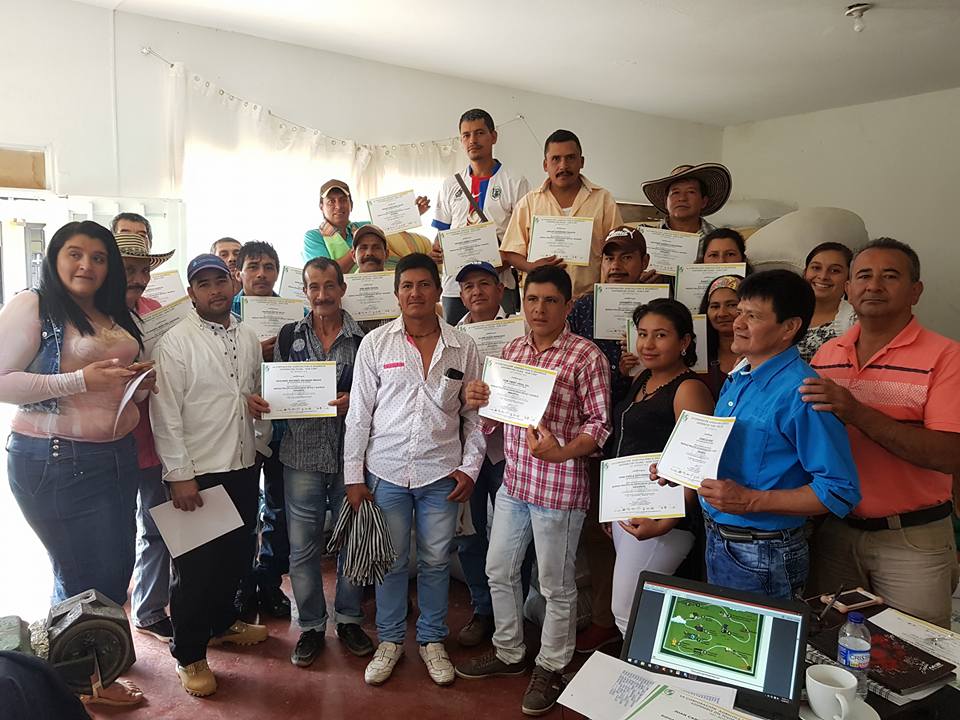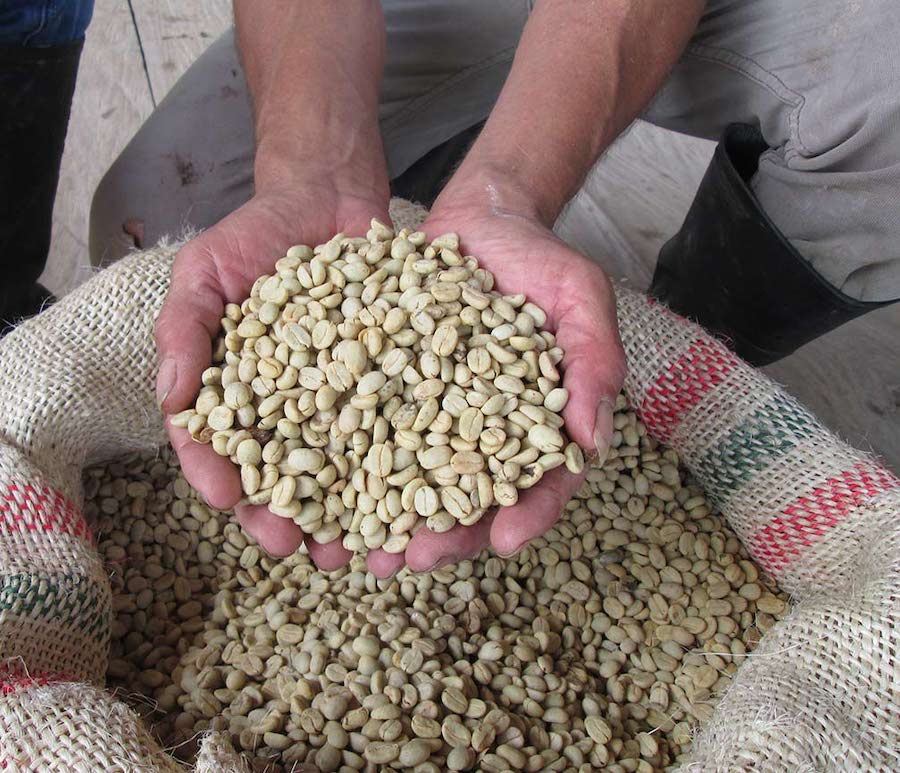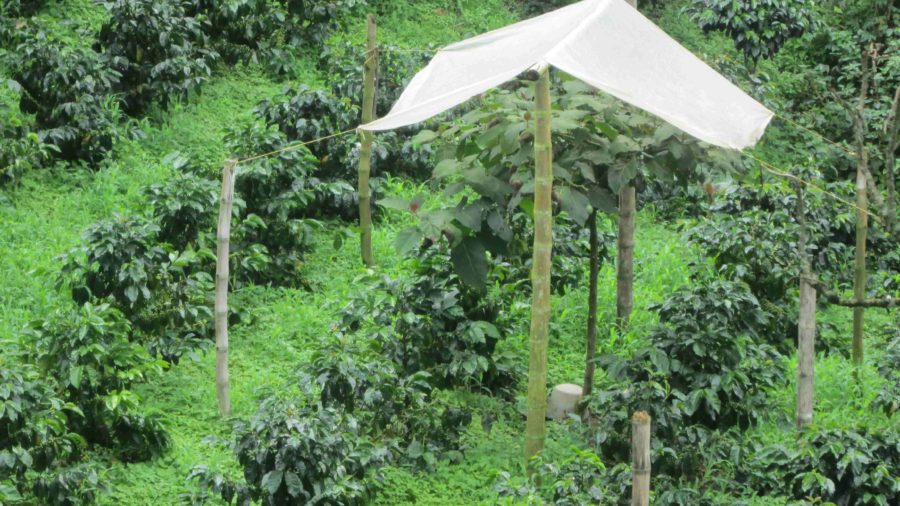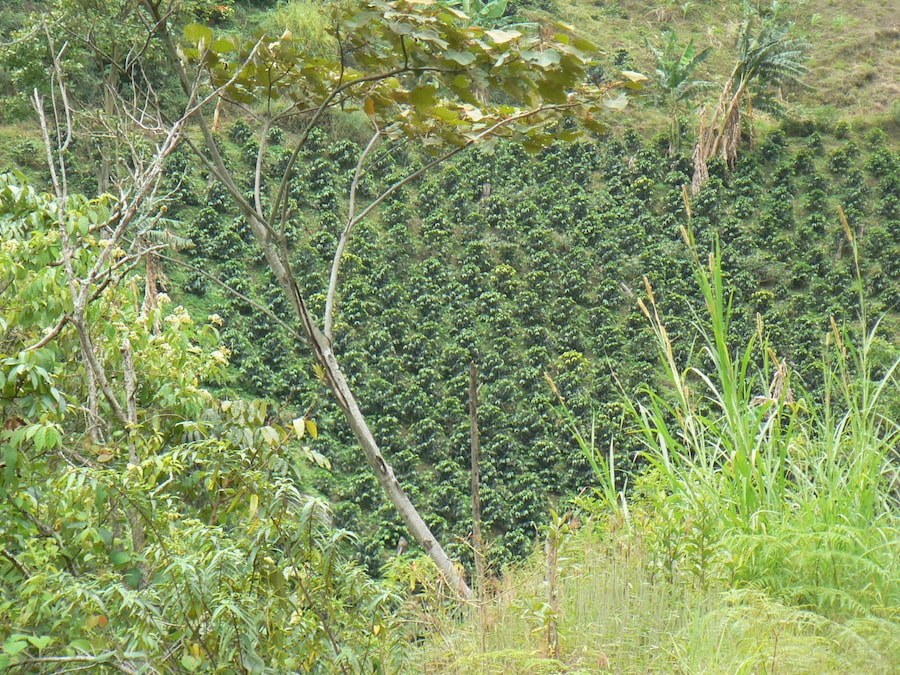Colombia Tolima is currently purchased from one of three cooperatives. Additionally, the coffee is available with Organic and Fairtrade Organic certifications. (Check with your trader for cooperative and certification details.)
ASOBRIS
The ASOBRIS producer association (or, Asociacion de Productores Agricolas Ecologicos y Pecuarios Brisas del Quebradon) reaches 25 villages in the municipality of Planadas, at the foot of the snow-peaked Nevado del Huila, the highest volcano in Colombia.
The association incorporated in 2013 and currently has 42 members. It’s an excited and conscientious group of producers who came together with the goal of finding new markets for their coffees and creating strategic alliances to improve social conditions for their members and communities. Further, they strive to increase their productivity and competitiveness through good agricultural practices and to implement and develop projects with sustainable approaches.
Association members cultivate Caturra, Colombia, Típica and Castillo between 1,500-1,800 masl in Planadas, Tolima. For this Colombia Tolima Excelso EP, cherries are harvested between April and May. Next, the cherry is pulped in a machine pulper and fermented for 18 to 24 hours. Then, beans are washed, wet milled and dried on patios for approximately 15 days. Finally, the beans are dried for a short time in a mechanical dryer, to ensure consistency.
ASOPAP
Colombia Tolima ASOPAP Fairtrade Organic is the product of a small union of coffee producers in Planadas, South Tolima, Colombia. Tolima is the third-largest coffee producing region of Colombia, responsible for 12 percent of the country’s annual production. This rural area is cradled by the Andean mountains and the Magdalena River basin. High elevation and sheltered valley climate result in stunning specialty coffee.
Forty-six farmers in this remote region are organized as the Asociacion de Productores Agropecuarios de Cafes Especiales de Planadas, or ASOPAP. They represent 60 family groups across 11 villages. Democratic representation and organization are the foundational values of the cooperative. ASOPAP empowers growers to make beneficial economic and social decisions that uphold stewardship of their natural environment. To this effect, they educate producers in organic practices and farm management.
Castillo, Colombia, Caturra and Typica varieties grow between 1,650-2,100 meters above sea level in Planadas, Tolima. It is hand-picked at peak maturation, between April and December. After being pulped, the coffee ferments for 24 to 36 hours before being washed and finally sun dried.
ASPRASAR
Asociación de Productores Agropecuarios de Santa Rosa (ASPRASAR) is a small-holder association in Southern Tolima. The group of 16 women and 51 men use their collective power to access agricultural services, Organic and Fairtrade Organic Certification and access wider markets. These efforts combine to significantly impact the quality of life for these producers. In turn, their investment in coffee production and environmental care create a more sustainable future.
Their coffee is grown in the highlands of Saldaña, in Bilbao and Herrera, Tolima, between 1700 and 1900 meters above sea level. The Colombia, Caturra, Castillo, Yellow Caturra varieties are grown using organic practices. Cherry is selectively picked between October and February, and again between May and August. The coffee is washed, pulped and dried.





